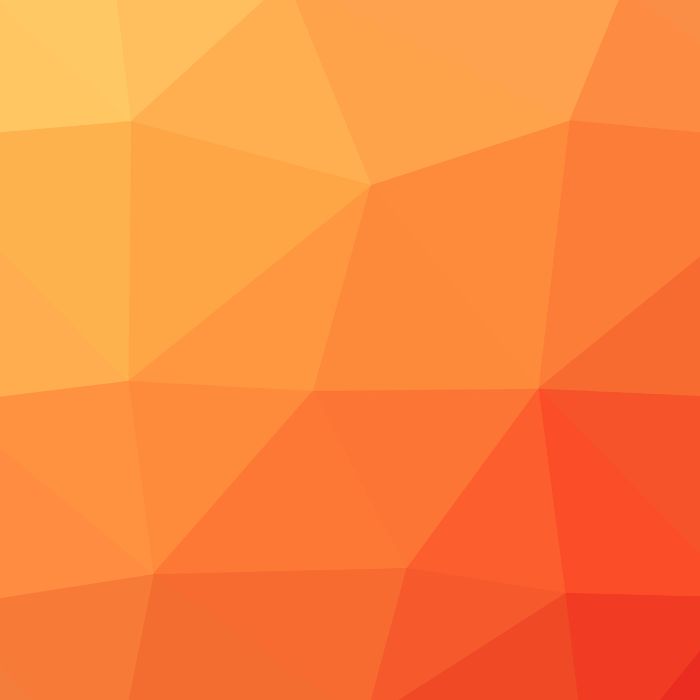European Union: Guidance for UK Residents in the European Union Under Article 50 Residence Permits
May 9, 2023
At a Glance
-
The application process for post-Brexit residence permits or residence registration options (‘Article 50 residence permits’) for UK nationals residing in EU Member States before December 31, 2020, and their non-EU national family members, varies considerably between EU Member States.
-
UK nationals arriving and starting work in an EU Member State after January 1, 2021 require work authorization as other non-EU nationals.
-
[Updated January 13, 2022] Application deadlines passed in most EU Member States. Only Cyprus, Estonia, Iceland, Ireland, Lithuania, Spain and Switzerland do not have a set deadline to apply for status. Eligible individuals are urged to apply promptly and/or seek immigration counsel on leniency policies.
A closer look
- The following EU Member States have adopted a stringent “constitutive” approach, meaning late applicants risk losing their status: Austria, Belgium, Denmark, Finland, France, Hungary, Latvia, Luxembourg, Malta, Romania, Slovenia and Sweden.
- Other EU Member States have adopted a “declaratory” system, meaning applicants with rights under the Withdrawal Agreement may still be granted a status if they miss the application deadline, though they may face administrative difficulties or fines.
- The EU requires that Member States conduct a case-by-case review of why applicants missed the application deadline. There is considerable authority discretion in such case-by-case checks and leniency cannot be guaranteed. All applicants are urged to apply swiftly, and to account for document gathering time and appointment backlogs.
- Details on Article 50 residence permit applications for eligible UK nationals and their family members are highlighted below:
Austria
- DEADLINE PASSED – individuals are urged to apply promptly and/or seek counsel on leniency policies. Late applicants may not be granted status and may risk penalties.
- Applicants demonstrate residence before December 31, 2020 by submitting proof of their EU residence registration. Applicants may additionally be required to submit a certificate of (self-)employment, proof of sufficient financial means and comprehensive health insurance.
- Government fees are EUR 61.50. No fees apply to current permanent residents seeking a 10-year Article 50 permit.
- Until the new permit is issued, individuals can demonstrate their status by their EU registration certificate, plus their Article 50 permit filing confirmation (once available).
- UK nationals with at least five years’ residence may apply for a permanent residence permit, even where they reach five years’ residence after December 31, 2020.
- Non-EU family members of UK nationals holding a corresponding residence permit may similarly apply for a national residence permit until December 31, 2021.
- UK posted workers who hold EU registration can switch to an Article 50 permit if they have received the “Anmeldebescheinigung” yellow paper; they have proof of comprehensive health insurance; proof of sufficient financial means; and an intention to stay in Austria at least six months per year. Applicants should switch to this status before June 30, 2021.
- If not eligible for an Article 50 permit, cross-border and/or posted workers with activities before December 31, 2020 should be able to continue working in Austria until the assignment end. After expiry of the Posted Worker Notification, UK nationals typically require work authorization as other non-EU nationals. Employers are urged to track notification expiry dates for these individuals as no transition or grace period is in place for the work authorization requirement.
- Cross-border and posted workers are advised to apply for an Article 50 permit by June 30, 2021. Their filing confirmation would already improve their residence status in Austria.
- Until June 30, 2021, UK nationals could apply for a new permit under general provisions for individuals who lost EU citizenship.
Belgium
- DEADLINE PASSED – individuals are urged to apply promptly and/or seek counsel on leniency policies. Late applicants may not be granted status and may risk penalties.
- Applicants demonstrate residence before December 31, 2020 by submitting proof of their EU residence registration. Alternatively, applicants can submit proof of having exercised a right of residence before December 31, 2020, e.g., proof of (self-)employment, studies, job search, or independent means, or a right to work before December 31, 2020, e.g. cross-border work.
- Government fees will be identical to Belgian ID card fees, and will vary between town halls.
- Town halls will issue a certificate confirming Article 50 permit application filing, valid for three months (renewable).
- Until the new permit is issued, individuals can demonstrate their status by their current proof of status (E/E+ card for UK nationals, F/F+ card for family members, Annex 15 for cross-border workers), or by the filing confirmation certificate. Until December 31, 2021 the valid residence cards (E/E+ card for UK nationals, F/F+ card for family members) can continue to be used for travel purposes
- UK nationals with at least five years' residence can apply for a 10-year permanent residence M-card if eligible. If they are not yet eligible, they will continue to accrue time towards permanent residence after January 1, 2021
- Non-EU family members of UK nationals holding a corresponding residence permit will similarly be invited to apply for a national residence permit before December 31, 2021.
- Cross-border workers with an established status (Annex 15) before December 31, 2020 would be able to continue similar activities, but should apply for a five-year N-card (renewable) once applications open. Applicants must submit a police clearance from their country of residence or country of origin.
- Cross-border workers without an Annex 15 require proof of eligible (self-)employment before December 31, 2020 to demonstrate their rights under the Withdrawal Agreement.
- Cross-border workers are advised to proactively check application filing options with their town hall of work early in 2021.
- UK national posted workers, performing activities in Belgium before December 31, 2020, may continue their activities in Belgium only if they qualify for residence or for the cross-border worker status, and must then apply for an M-card or N-card as detailed above once applications open.
Bulgaria
- DEADLINE PASSED – individuals are urged to apply promptly and/or seek counsel on leniency policies. Late applicants may not be granted status and may risk penalties.
-
Until the new permit is issued, individuals can demonstrate their status by their current EU Residence Certificate or family member residence permit.
-
Non-EU family members of UK nationals holding a corresponding residence permit may similarly apply for a national residence permit until December 31, 2021 or their permit’s expiry date; whichever is sooner.
-
Applications must be filed in person.
-
UK nationals can demonstrate residence before December 31, 2020 with an EU Residence Certificate or EU Residence Permit for dependents.
-
The government fee is BGN 18 for a 30-day processing time or BGN 36 for three-day processing time.
-
UK nationals with residence over five years can apply for a permanent residence certificate, or can renew their current certificate no later than three days before the expiration date of the current one, or by December 31, 2021, whichever is earlier.
-
Updated November 9, 2021: The Bulgarian Ministry of Interior has published general information about the procedure for cross-border/frontier workers
Croatia
- DEADLINE PASSED – individuals are urged to apply promptly and/or seek counsel on leniency policies. Late applicants may not be granted status and may risk penalties.
- Application processes vary by police administration/police station. Applications can be filed online in Zagreb, but other locations require an in-person appointment.
- Applicants demonstrate residence before December 31, 2020 by submitting proof of filing a residence card application; proof of address registration; a local health insurance card; a supporting statement by a Croatian employer statement; proof of cross-border work; or other relevant documentation; confirming residence before December 31, 2020.
- Government fees are HRK 79,50, or HRK 225,00 for a frontier workers' permit.
- UK nationals with at least five years’ residence as of December 31, 2020 may apply for a permanent residence permit. UK nationals with less than five years’ residence will receive a temporary stay permit.
- Non-EU family members of UK nationals holding a corresponding residence permit may similarly apply for a national residence permit until June 30, 2021. Non-EU family members who have not resided in Croatia before January 1, 2021 may apply for a temporary stay permit within six months of entering Croatia.
- Cross-border workers with an established status before December 31, 2020 would be able to continue similar activities if they apply for a frontier worker certificate.
Cyprus
- There is no set application deadline. Current EU residence documents remain valid. If the applicant holds proof of residence, they continue to be eligible for an Article 50 permit.
- Applications are filed by in person with simultaneous submission of biometric data to finalize the process. Applications are filed with the Civil Registry and Migration Department in Nicosia or the District Units of the Aliens and Immigration Service in the city where the applicant is living by scheduling an appointment.
- Applicants demonstrate residence before December 31, 2020 by submitting proof a Certificate of Registration (MEU1), Residence Card (MEU2) or Certificate/Card of Permanent Residence (MEU3). Alternatively, they may submit the following documents to prove residence: rental agreement, property ownership document, utility bills, local bank statements, social insurance certificate. Other documents may be accepted on a case-by-case basis.
- Government fees are EUR 30.
- Until the new permit is issued, individuals can demonstrate their status by their EU residence document.
- UK nationals with at least five years’ residence as of December 31, 2020 may apply for a 10-year permanent residence permit. UK nationals with less than five years’ residence will receive a five-year permit.
- Non-EU family members of UK nationals holding a corresponding residence permit may similarly apply for a national residence permit before expiry of their current permit.
- Cross-border workers and posted workers may require work authorization to continue their activities, and are advised to consult with immigration counsel.
Czech Republic
- DEADLINE PASSED – individuals are urged to apply promptly and/or seek counsel on leniency policies. Late applicants may not be granted status and may risk penalties.
- UK nationals holding a certificate of temporary residence can apply for a biometric residence card between August 2, 2021 and August 2, 2022. Details on the application process, including government fees, are not yet published.
- UK citizens employed under a local contract in the Czech Republic before the end of the transition period, holding a status under the Withdrawal Agreement, can continue to work without a work permit and may also terminate and start another employment relationship with another employer without a work permit.
- UK national workers posted to the Czech Republic before December 31, 2020 can complete their posting but require a work permit for subsequent activities. The Ministry urged affected individuals to submit work permit applications by December 31, 2020.
- Cross-border workers who started working in the Czech Republic by the end of the transition period, but who do not plan to reside in the Czech Republic permanently or temporarily can maintain their access to cross-border employment. Due to the absence of residence, they will not be able to obtain a residence permit from the Ministry of the Interior.
Denmark
UPDATE MARCH 28, 2023: The Danish government announced that the deadline for submitting an application for the right to reside in Denmark based on the Withdrawal Agreement has been extended until the end of 2023 (update as of May 2, 2023). Applications which have been assessed to have “no reasonable reason” will continue to be put on hold.
UPDATE FEBRUARY 9, 2023: The Danish Agency for International Recruitment and Integration will not reject late Brexit applications if applicants have a valid reason for not timely submitting new residence documents under the Withdrawal Agreement between the EU and the United Kingdom before the deadline expired on December 31, 2021, and instead authorities will put these cases on hold. However, this policy only applies to UK citizens and their family members who were legal residents of Denmark on or before December 31, 2020.
- DEADLINE PASSED – individuals are urged to apply promptly and/or seek counsel on leniency policies. Late applicants may not be granted status and may risk penalties.
-
UK nationals holding a permanent residence permit based on EU free movement must also apply for a new Article 50 permit. These individuals similarly apply in slots as detailed in an information letter.
-
Applications can be filed online or submitted on paper. The application process includes submitting biometric data. No government fees apply.
-
Applicants demonstrate residence before December 31, 2020 by submitting an EU Registration Certificate; or lease agreement, utility bills and/or employment agreement if an EU Registration Certificate is not yet available.
-
Until the new permit is issued, individuals can demonstrate their status by their EU Registration Certificate or family member residence permit.
-
UK nationals with at least five years’ residence as of December 31, 2020 may apply for a permanent residence permit, which grants a corresponding 10-year card. UK nationals with less than five years’ residence will receive a temporary, five-year Article 50 permit.
-
Non-EU family members of UK nationals holding a corresponding residence permit may similarly apply for a national residence permit until December 31, 2021. Their application window corresponds to the UK national's application window, as confirmed in the invitation letter.
-
Cross-border workers with an established status before December 31, 2020, confirmed through employment- and travel-related supporting documents, would be able to continue similar activities. These individuals apply at their own initiative throughout 2021 (but are advised to apply early) and receive a cross-border worker card to confirm their status. UK national cross-border workers do not need to be under a local contract after December 31, 2020 but must provide proper documentation to continue their position, such as an employment contract, supporting letter from the employer or an assignment letter mentioning the commuting arrangement.
-
Posted workers can continue their posting throughout 2021 without additional process steps. These individuals should carry an assignment letter confirming their travel purpose and a start date before December 31, 2020. Posted workers whose posting will continue after 2021 are eligible for and must apply for an Article 50 permit. These individuals should submit proof of work in Denmark before December 31, 2020; proof of their UK address; and an assignment letter listing an assignment end date. Employers must file posted worker notifications for all non-exempt workers.
-
Further information is available on this site.
Estonia
-
Applications for Article 50 permits must be filed before expiry of the current EU national identification (ID) card or family member residence permit.
-
Current EU national ID cards and family member residence permits remain valid, including in case of travel and re-entry into Estonia.
- Applications can be filed by email with a digital signature, or in person at a Police and Border Guard Board service office. Applications may be made available via the online self-service environment in future.
-
Applicants demonstrate residence before December 31, 2020 by submitting their ID card. No other proof of residence is accepted.
-
Government fees are EUR 35 for Article 50 residence card applications (EUR 7 for pensioners or those with a disability; EUR 64 for expedited processing; additional EUR 20 for collection at a consular post).
-
UK nationals holding an Article 50 permit and family members holding a corresponding permit continue to accrue residence towards permanent residence.
-
Cross-border and posted workers who are not seeking residence in Estonia require work authorization.
Finland
-
DEADLINE PASSED – individuals are urged to apply promptly and/or seek counsel on leniency policies. Late applicants may not be granted status and may risk penalties.
-
Applicants already registered under the EU scheme need not demonstrate residence before December 31, 2020 as immigration authorities have direct access to population records. Individuals who registered very recently can submit alternative proof of residence registration, such as a lease agreement, utility bills and/or proof of residence registration filing.
-
Government fees are EUR 48.
-
Until the new permit is issued, individuals can demonstrate their status by their EU residence registration or family member permit.
-
UK nationals with at least five years’ residence as of December 31, 2020 apply for a long-term permanent residence permit free of charge.
-
Non-EU family members of UK nationals holding a corresponding residence permit may similarly apply for a national residence permit until September 30, 3021.
-
The proposal does not include any specific arrangement for cross-border workers. Fragomen recommends posted and cross-border workers to obtain work authorization unless exempt.
France
- DEADLINE PASSED – individuals are urged to apply promptly and/or seek counsel on leniency policies. Late applicants may not be granted status and may risk penalties.
- On September 28, 2021, the deadline for UK nationals to hold Withdrawal Agreement residency cards was extended to January 1, 2022 from September 30, 2021.
- Applicants may demonstrate residence before December 31, 2020 by a range of documents (tax notices, bank statements, pay slips, employment contracts, rent payments, proof of real estate ownership, utility bills)
- There are no government fees for the Article 50 permit.
- Upon filing of the request online, a notification will be sent to the applicant’s e-mail. Applicants should print this out as proof of their interim status.
- UK nationals resident in France for over five years as of December 31, 2020 will be entitled to a 10-year permanent Article 50 permit. UK nationals resident for under five years will be entitled to an Article 50 permit valid for one to five years depending on their circumstances.
- Family members of UK nationals holding an Article 50 residence permit and whose family link existed prior to December 31, 2020, can still apply for the same residence permit directly with the local authorities (the “Prefectures”). Processes will vary from one local authority to another.
- UK national cross-border workers resident in France can apply for a permit on the French online system. UK national cross-border workers resident outside France who started a professional activity in France before January 1, 2021 must apply for a five-year (renewable) Article 50 frontier worker permit (‘circulation document’) before September 30, 2021 in order to maintain their right to work. The application must be filed with the Prefecture with jurisdiction over their place of work. The application process is not available online and may vary between Prefectures. Such cross-border workers will be required to hold a circulation document, or proof of timely filing, starting October 1, 2021.
- UK nationals who started their assignment before the end of the Brexit transition period who are entitled to register under the Withdrawal Agreement may face difficulties entering France if they have not filed their application but plan to do so online before October 4, 2021 and if they cannot show that they established residence in France before the end of the transition period. Therefore, UK nationals who are eligible to apply for residence permits in France under the Withdrawal Agreement should submit their applications online and obtain a registration number to demonstrate they are covered under the Withdrawal Agreement as soon as possible.
Germany
-
DEADLINE PASSED – individuals are urged to apply promptly and/or seek counsel on leniency policies. Late applicants may not be granted status and may risk penalties.
-
Individuals with urgent travel needs can apply to receive an interim document prior to residence card issuance.
-
Applications require an in-person visit to submit biometric data.
-
Applicants demonstrate residence before December 31, 2020 by submitting an EU Registration Certificate. No alternative documents are accepted.
-
Government filing fees are not yet confirmed.
-
Until the new permit is issued, individuals can demonstrate their status with their confirmation of registration of residential address.
-
UK nationals with at least five years’ residence as of December 31, 2020 may apply for a permanent residence permit. UK nationals with less than five years’ residence will receive a temporary permit.
-
Non-EU family members of UK nationals holding a corresponding residence permit may similarly apply for a national residence permit until June 30, 2021.
-
Cross-border workers with an established status before December 31, 2020 similarly apply at their local immigration office to obtain a special type of residence/work permission for cross-border workers confirming their right to continue similar work activities.
-
A government FAQ is available here, and information on the responsible foreigners authority is available here.
Greece
-
DEADLINE PASSED – individuals are urged to apply promptly and/or seek counsel on leniency policies. Late applicants may not be granted status and may risk penalties.
-
Applicants demonstrate residence before December 31, 2020 via proof of their EU residence registration, pay slips and/or a lease agreement.
-
Government fees are EUR 16, both for UK nationals and their non-EU family members.
-
Until the new permit is issued, individuals can demonstrate their status by their EU residence registration, plus proof of application filing once available.
-
UK nationals with at least five years’ residence as of December 31, 2020 may apply for a 10-year residence permit.
-
Non-EU family members of UK nationals holding a corresponding residence permit apply for a specific permit for family members of UK nationals at the Migration authorities between January 1 and June 30, 2021.
-
The proposal does not include any specific arrangement for cross-border workers.
Hungary
-
DEADLINE PASSED – individuals are urged to apply promptly and/or seek counsel on leniency policies. Late applicants may not be granted status and may risk penalties.
-
UK nationals who missed this application deadline are advised to apply promptly. They can still obtain an Article 50 permit based on clear evidence of residence and an intent to settle. Their non-EU family members may have to submit additional supporting documents.
-
UK nationals holding EU Residence Registration remain authorized to stay and work in Hungary with no additional permit until December 31, 2021.
-
UK nationals and their non-EU family members may apply for a National Permanent Residence Permit by December 31, 2021. This permit is available to all non-EU national applicants, but UK nationals and their non-EU family members, registered in Hungary before December 31, 2020 will benefit from reduced document requirements and expedited 30-day processing.
-
Through this unique approach, Hungary funnels UK nationals and their non-EU family members, registered in Hungary before December 31, 2020, into the National Permanent Residence Permit category.
-
Applications require a prescheduled in-person appointment to submit biometric data.
-
No government fees apply.
-
UK national cross-border or posted workers who habitually stayed in Hungary before December 31, 2020, demonstrated by a Hungarian employment contract or statement on income from regular work activity in Hungary, may qualify for a National Permanent Residence Permit.
-
UK national cross-border or posted workers without habitual stay in Hungary require work and residence authorization as other non-EU nationals to continue their activities after January 1, 2021.
Iceland
- Applicants demonstrate residence before December 31, 2020 by submitting their Residence certificate (C-122) issued by Registers Iceland.
- A new permit is forthcoming but details on the application process, including government fees and an application deadline, have not yet been published. Applicants are advised to monitor this website.
- UK nationals with at least five years’ residence as of December 31, 2020 do not receive a more favorable status. All UK nationals resident before December 31, 2020 receive an Article 50 permit card.
- Non- EU family members of UK nationals who are residing in Iceland and have registered their right of residence with Registers Iceland before the end of the transition period can apply for family reunification under the current rules for EU/EEA nationals prior to December 31, 2020.
- Cross-border workers who are not resident in Iceland require work authorization, even where these individuals performed cross-border work before December 31, 2020.
Ireland
-
Unlike in the rest of the EU, Brexit has no impact on UK nationals seeking to travel, reside, or work in Ireland after January 1, 2021. UK nationals will continue to benefit from favourable treatment under the Common Travel Area agreement. There will be an impact, however, for UK nationals' family members if they themselves are not nationals of European Economic Area (EEA) member states.
-
Any non-EEA national who (1) currently resides in Ireland with a UK national family member and (2) holds a valid EUFAM residence card will retain their residence and work rights after January 1, 2021. However, they must exchange their current EUFAM residence card for a new one that states their residence rights derive from the Withdrawal Agreement by applying online, regardless of county or city of residence. The application deadline has been extended to June 30, 2022.
-
Non-EEA family members of UK nationals not yet resident in Ireland require pre-clearance. Details on the pre-clearance scheme are published on this site. Processing times are up to six months.
Italy
-
DEADLINE PASSED - individuals are urged to apply promptly and/or seek counsel on leniency policies. Late applicants may not be granted status and may risk penalties.
-
UK nationals and their family members, resident before December 31, 2020, obtain an ‘attestazione di iscrizione anagrafica’ via an in-person visit.
-
Once they have obtained the “attestazione”, UK nationals and their family members apply for a “carta di soggiorno” (valid for up to 5 years) or “carta di soggiorno permanente” (valid for up to 10 years). The document will be issued in an electronic format.
-
Applications are filed at the local Questura (Police Headquarters / Immigration Police) via an in-person visit. Applicants submit the “attestazione”, among other documents, and fingerprints for the residence permit card. Successful applicants visit the Questura once again to collect the permit once available.
-
Government fees are EUR 30.46 per application.
-
Employed or self-employed frontier workers (as defined under the EU-UK trade and cooperation agreement) may request a five-year electronic document certifying their status. Applications are filed at the Questura of the province of work, and require proof of eligible (self-)employed activity in Italy before December 31, 2020.
-
UK national students holding an electronic residence permit, issued by the Questura of the province of residence, may continue to renew their permit until the end of the course of study.
-
UK nationals arriving and starting work after January 1, 2021 require work authorization as other non-EU nationals.
Latvia
- DEADLINE PASSED – individuals are urged to apply promptly and/or seek counsel on leniency policies. Late applicants may not be granted status and may risk penalties.
- Applicants demonstrate residence before December 31, 2020 by submitting proof of their EU residence registration.
- There are no government fees associated with the post-Brexit permit but the identification card costs EUR 15 for issuance within 10 business days or EUR 30 for issuance within two business days
- Until the new permit is issued, individuals can demonstrate their status by their EU Registration Certificate or family member residence permit; plus proof of application filing once available.
- UK nationals with over five years’ residence are eligible for a permanent permit which can be renewed every 10 years. Others can obtain a temporary permit which can be renewed every five years.
- Non-EU family members of UK nationals holding a corresponding residence permit may similarly apply for a national residence permit until June 30, 2021.
- Cross-border workers with an established status before December 31, 2020 can continue similar activities. These individuals similarly apply for status under the Withdrawal Agreement before June 30, 2021.
Liechtenstein
- UK nationals residing in Liechtenstein prior to January 1, 2021 will keep their original residence rights and must register upon arrival to secure their residence rights. UK nationals already registered in Liechtenstein do not need to register again.
- Any rights obtained under the current regulation until January 1, 2021 will remain valid. Family reunion applications for those family members not yet in Liechtenstein will follow the same process as before January 1, 2021, provided that the principal has a regulated status in Liechtenstein under the current legislation and the marriage took place before January 1, 2021.
- UK nationals with cross-border permits into Liechtenstein will keep these obtained rights after January 1, 2021. Upon expiry of their permit, they will have to renew their permit as usual.
Lithuania
- Current EU residence registration and non-EU family member documents remain valid, and must be exchanged before expiry or sooner in case of travel needs.
- UK national residents are expected to face travel restrictions until they obtain an Article 50 permit.
- Applications are filed via the online Lithuanian Migration Information System (MIGRIS). Applicants simultaneously schedule an appointment to submit original documents and biometric data. The Migration Department will process the application within one month of receiving hardcopies. Successful applicants schedule another appointment to collect their permits.
- No government filing fees apply.
- Applicants demonstrate residence before December 31, 2020 by submitting proof of their EU residence registration. If not yet available, applicants demonstrate residence by e.g., employment contract, company support letter, proof of company ownership, etc.
- UK nationals with at least five years’ residence as of December 31, 2020 may apply for a temporary residence permit, valid for a five-year period. Those with at least 10 years’ residence as of December 31, 2020 may apply for a permanent residence permit, issued in 10-year increments. Those who leave Lithuania for five consecutive years will lose permanent residence status.
- Current residence permits of non-EU family members of UK nationals remain valid. They similarly apply for a new residence permit before the expiry of their current permit, or sooner in case of travel needs. These individuals similarly face travel restrictions until they obtain an Article 50 permit.
- Cross-border and posted workers without EU registration require work authorization as other non-EU nationals, even if their cross-border or posted activities started before December 31, 2020.
- UK nationals arriving in Lithuania and starting work after January 1, 2021 require work authorization. They apply under the visa exempt route (similar to e.g., Australian and US nationals) and benefit from one-month streamlined processing.
Luxembourg
- UPDATE MAY 9, 2023: UK nationals in Luxembourg who still hold a Luxembourg residence certificate as an EU national, a family member permit of these EU nationals, and Luxembourg permanent residence holders, must submit their Article 50 residence cards renewal applications by June 30, 2023.
- DEADLINE PASSED – individuals are urged to apply promptly and/or seek counsel on leniency policies. Late applicants may not be granted status and may risk penalties.
- Applications are filed by post. Applicants are invited to submit biometric data and can collect their Article 50 permit approximately a week later.
-
Applicants demonstrate residence before December 31, 2020 by submitting proof of their EU residence registration. No other proof of residence before December 31, 2020 is accepted.
-
No government fees apply.
-
Until the new permit is issued, individuals can demonstrate their status by their EU registration certificate or family member permit.
-
UK nationals with at least five years’ residence as of December 31, 2020 may apply for a permanent Article 50 residence permit. UK nationals with less than five years’ residence will receive a five-year temporary Article 50 permit.
-
Non-EU family members of UK nationals holding a corresponding residence permit may similarly apply for an Article 50 (dependent) permit until December 31, 2021.
-
Cross-border workers with an established status before December 31, 2020 apply for a 10-year cross-border worker permit. These permits are currently being issued. Applicants must be employed in Luxembourg, or have regular employment in Luxembourg (listed on their EU-based employment contract) to be eligible. Applications are free of charge and require proof of residence in the European Union or United Kingdom and a recent social security certificate, among limited other documents. Applicants submit biometric data during the application process. Non-EU national family members of UK national cross-border workers are no longer work permit exempt after January 1, 2021.
-
UK nationals on a foreign employment contract, posted to Luxembourg under free movement of services, require work authorization as other EU nationals to continue their assignment after January 1, 2021. Luxembourg did not establish a specific exemption for posted workers who did not establish residence in 2020; and who are not eligible cross-border workers. These individuals require work authorization unless work permit exempt under a general exemption for non-EU nationals (e.g., eligible 90-day intracompany secondments, Vander Elst service providers).
Malta
-
DEADLINE PASSED – individuals are urged to apply promptly and/or seek counsel on leniency policies. Late applicants may not be granted status and may risk penalties.
-
Until the new permit is issued, individuals can demonstrate their status by their EU residence registration or family member permit.
-
No government fees apply to the change of status. This is subject to change.
-
UK national residents and their family members will receive a 10-year permit, regardless of their duration of prior residence.
-
Non-EU family members of UK nationals holding a corresponding residence permit, and those who fall under the provisions of the Withdrawal Agreement may similarly apply for a national residence permit until June 30, 2021. However, family members (other than children) will only be covered by these provisions if their relationship commenced before December 31, 2020.
-
UK nationals who commute to Malta must file a Posted Worker Notification every time they travel to Malta. The situation after January 1, 2021 remains uncertain.
-
The following documents can be submitted to demonstrate residence before December 31, 2020:
- boarding pass/es;
- bank statements showing local transactions;
- record of employment/self employment (as applicable)
- proof of rental of property; and
- any such document which Identity Malta Agency deems to be proof of date of settlement in Malta.
Netherlands
-
DEADLINE PASSED – individuals are urged to apply promptly and/or seek counsel on leniency policies. Late applicants may not be granted status and may risk penalties.
-
Applicants demonstrate residence before December 31, 2020 by submitting their Citizen Service Number (BSN).
-
Government fees are EUR 58, or EUR 31 for children.
-
Until the new permit is issued, individuals can demonstrate their status by their EU registration certificate or family member permit, combined with proof of filing their Article 50 permit once available.
-
UK nationals with at least five years’ residence as of December 31, 2020 may apply for a permanent residence permit.
-
Non-EU family members of UK nationals holding a corresponding residence permit may similarly apply for a national residence permit until October 1, 2021.
-
Cross-border workers with an established status before December 31, 2020, holding a local employment contract and a Dutch registration number (BSN), are required to apply for a ‘Frontier worker document’ as soon as possible. Individuals on foreign employment contract may still be eligible for a 'Frontier worker document' if they can demonstrate that they are not working in the Netherlands temporarily as a (seconded) posted worker, but that their activities are more durable. Other cross-border workers require a work permit.
Norway
- DEADLINE PASSED – individuals are urged to apply promptly and/or seek counsel on leniency policies. Late applicants may not be granted status and may risk penalties.
- There are no fees for this permit.
- UK nationals must submit an employment contract and Norwegian payslip (confirming payment in Norway before January 1, 2021), or other documents proving their employment status before December 31, 2020. Alternatively, applicants demonstrate residence before December 31, 2020 via an EU Registration certificate, National Registry Certificate of Residence, plane ticket or other documents proving residence prior to this date.
- UK nationals with at least five years’ residence as of December 31, 2020 may apply for a permanent residence permit. UK nationals with less than five years’ residence will receive a five-year permit. Permanent residents must also change their permit. Individuals with pending citizenship applications as of December 31, 2020 must also apply for a post-Brexit permit starting January 1, 2021, to demonstrate their status while their citizenship application is processed.
- Cross-border workers on a Norwegian employment contract are eligible for a one-year renewable Brexit permit, and similarly apply before December 31, 2021.
- UK nationals employed in an EU/European Economic Area country and posted to Norway are work permit-exempt for up to three months, and may stay longer if posted under free movement of services or if their work contributes to establishing a Norwegian business. Eligible service providers apply for a one-year residence card after 90 days.
- Other posted workers, including UK and EU nationals on a UK contract, require a residence permit with work authorization as non-EU nationals, even if their assignment started before December 31, 2020 and they have registered with the Police. These posted workers must stop working until their non-EU residence permit with work authorization is granted.
Poland
- UPDATE FEBRUARY 3, 2023: The Foreigners and Borders Service (SEF) has opened residence registration services on Portugal’s Brexit Portal for family members of British citizens who are beneficiaries of the EU-UK Withdrawal Agreement. Qualified beneficiaries must use their existing credentials on the Brexit Portal for registration and appointment scheduling; complete residence card information for each qualifying family member; define the degree of kinship; and lastly, confirm registration. Once the application has been reviewed, family members are expected to be notified via email to proceed with scheduling a biometrics appointment and collecting their new residence permit. This service is currently only available to family members of EU citizen or third-country nationals who holds a Portuguese residence card.
-
DEADLINE PASSED – individuals are urged to apply promptly and/or seek counsel on leniency policies. Late applicants may not be granted status and may risk penalties.
-
Applications are filed in person at local voivodeship offices. Applicants over six years old apply in person and submit fingerprints.
-
Applicants demonstrate residence before December 31, 2020 by submitting their EU residence registration or family member permit. Applicants who do not yet hold such a document can instead provide confirmation of their submission of the EU residence registration application or address registration by city hall, a signed labor contract, payment of social security or submission of a Posted Worker Notification.
-
No government fees apply.
-
Until the new permit is issued, individuals can demonstrate their status by submitting proof of their EU registration or family member residence card and proof of the Article 50 application filing, once available. Proof of filing will be valid for one year and is renewable once, if needed.
-
UK nationals with at least five years’ residence, either before or after the end of the transition period, will receive permanent residence permits. UK nationals with less than five years’ residence will receive an Article 50 residence permit. Current Permanent Residence Permit holders are not required to apply for a new permit document but may replace their existing Permanent Residence Card with Residence Card with Annotation “Withdrawal Agreement”.
-
Non-EU family members of UK nationals holding a corresponding residence permit may similarly apply for a national residence permit until December 31, 2021.
-
UK national posted workers, active in Poland before January 1, 2021, may be eligible for a posted worker permit. Applicants must hold an assignment letter from a foreign entity which lists a Polish work address to be eligible. The posted worker permit is a five-year Residence Permit allowing UK national posted workers and their accompanying family members to continue to work and stay in Poland through 2021. The permit contributes towards permanent residency depending on duration and continuity of stay. No government fees apply to the UK national posted worker, but family members are subject to a PLN 50 fee for the new card.
Portugal
UPDATE FEBRUARY 3, 2023: The Foreigners and Borders Service (SEF) has opened residence registration services on Portugal’s Brexit Portal for family members of British citizens who are beneficiaries of the EU-UK Withdrawal Agreement. Qualified beneficiaries must use their existing credentials on the Brexit Portal for registration and appointment scheduling; complete residence card information for each qualifying family member; define the degree of kinship; and lastly, confirm registration. Once the application has been reviewed, family members are expected to be notified via email to proceed with scheduling a biometrics appointment and collecting their new residence permit. This service is currently only available to family members of EU citizen or third-country nationals who holds a Portuguese residence card.
- DEADLINE PASSED – individuals are urged to apply promptly and/or seek counsel on leniency policies. Late applicants may not be granted status and may risk penalties.
- Applications are filed online. Applicants are contacted by immigration authorities to schedule an appointment to submit biometric data, required to create a residence card. Such appointments are currently on hold under pandemic-related restrictions.
- Applicants demonstrate residence before December 31, 2020 by submitting proof of their EU residence registration. Other documents demonstrating residence will be accepted at the authorities' discretion.
- Until the new permit is issued, individuals can demonstrate their status by a digital filing confirmation with a QR code. Applicants can print this document to allow re-entry in case of travel.
- UK nationals with at least five years’ residence as of December 31, 2020 may apply for a permanent residence permit - specific type to be determined. UK nationals with less than five years’ residence will receive a temporary residence document - specific type to be determined.
- Non-EU family members of UK nationals holding a corresponding residence permit may apply for an Article 50 permit before expiry of their current EU family member card.
- Cross-border workers with an established status before December 31, 2020 would be able to continue similar activities. Cross-border workers will be able to apply for a cross-border worker certificate once the authorities publish the application process. In the meantime, cross-border workers are advised to carry all documentation related to the employer, client in Portugal, period of stay, tasks to be performed and health insurance valid in Portugal.
- A streamlined process may yet be introduced for UK nationals starting work on or after January 1, 2021.
Romania
- DEADLINE PASSED – individuals are urged to apply promptly and/or seek counsel on leniency policies. Late applicants may not be granted status and may risk penalties.
-
UK national residents and their family members should register for the new residence status as beneficiaries of the Withdrawal Agreement by December 31, 2021.
-
UK nationals and their family members with a Withdrawal Agreement Residence permit can enter Romania without a visa based on a valid travel document and their residence permit during the validity period of their respective permit. Until they obtain their Article 50 residence permit, they can enter Romania without a visa or other formalities, based on valid documents issued by Romanian authorities.
-
UK nationals not entitled to rights under the Withdrawal Agreement can enter Romania without a visa and can stay for up to 90 days in a 180-day period. Those who enter for work must obtain Romanian work authorization.
-
Residence documents issued by the General Inspectorate for Immigration in Romania will be recognized until December 31, 2021.
-
Government fees are not yet confirmed.
-
It is not yet known if there is a more favorable status for individuals with residence over 5 years.
-
It is not yet known if there are there any provisions for cross-border workers.
Slovakia
-
DEADLINE PASSED – individuals are urged to apply promptly and/or seek counsel on leniency policies. Late applicants may not be granted status and may risk penalties.
-
Until the new permit is issued, individuals can demonstrate their status with their EU Residence Registration or their family member permit.
-
Non-EU family members of UK nationals who arrive in Slovakia and started their residency before 2021 who hold a corresponding residence permit may similarly apply for a national residence permit until June 30, 2021. Those whose relationship existed before December 31, 2020 can apply for residence status in Slovakia at any time.
-
In-person application submission is required (biometric data is scanned since new Residence Cards are issued). Applicants can schedule an appointment online.
-
Documents that are accepted to demonstrate residence before December 31, 2020 include EU registration documents. It is not clear whether lease agreement/utility bills will be accepted.
-
The fee for a new Residence Card for UK nationals who are only changing their status is EUR 4.50 (or EUR 24.50 for expedited issuance).
-
UK nationals living in Slovakia for five years or longer will receive a Long-Term Residence Permit, which is granted for an unlimited period. The Residence Card is valid for 10 years.
-
Cross-border workers should register their residence and obtain their respective Residence Card (with a permanent residence status). Non-EU cross-border workers with permanent residence status do not require any additional work authorization.
-
Employers of UK nationals must notify the Labour Office by January 13, 2021 of UK nationals starting employment before December 31, 2020 if not yet completed. As a reminder, employers must store a copy of UK nationals’ Article 50 residence permits in their personnel files once available.
Slovenia
- DEADLINE PASSED – individuals are urged to apply promptly and/or seek counsel on leniency policies. Late applicants may not be granted status and may risk penalties.
-
Applications are filed in person with an Administrative Unit (Upravne Enote) to submit biometric data, with another in-person visit to collect the permit.
-
Applicants demonstrate residence before December 31, 2020 by submitting proof of their EU residence registration.
-
Government fees are EUR 17 for a five-year temporary permit or EUR 22 for a permanent residence permit.
-
Until the new permit is issued, individuals can demonstrate their status by their EU residence registration or family member permit, plus the Article 50 certificate of application once available.
-
UK nationals with at least five years’ uninterrupted residence as of December 31, 2020 may be eligible for permanent residence, which is valid indefinitely if granted. Other applicants will receive a five-year Article 50 permit.
-
Non-EU family members of UK nationals holding a corresponding residence permit may similarly apply for a national residence permit until December 31, 2021 or the expiry date of their current permit, whichever is sooner.
-
Frontier workers on a Slovenian employment contract with an established status before December 31, 2020 would be able to continue similar activities. Individuals can apply at an Administrative Unit in Ljubljana for a certificate identifying their frontier workers’ rights.
-
No specific exemptions are implemented for posted workers or other non-resident workers on foreign employment contracts. These individuals are required to obtain work authorization starting January 1, 2021.
Spain
-
No fixed Article 50 application deadline has been confirmed yet.
-
UK nationals resident on or before December 31, 2020 apply at the police station in person to exchange their EU certificate of registration for a residence card (TIE). Applicants do not require an invitation to apply.
-
Applicants demonstrate residence before December 31, 2020 by an EU certificate of registration.
-
Government fees are EUR 12.
-
Until the new permit is issued, individuals can demonstrate their status by their current residence document, or by proof of application filing.
-
UK nationals with at least five years' residence as of December 31, 2020 will receive a 10-year residence permit card.
-
Non-EU family members of UK nationals holding a corresponding residence permit apply for a national residence permit before expiry of their current permit.
- UK cross-border workers, working in Spain before December 31, 2020, may request a document to identify their status.
-
UK nationals posted in Spain before December 31, 2020 can keep providing their services in Spain during the validity of their status. They will have to apply for a residence document/card and maintain their social security coverage, among other labor requirements, during their posting.
Sweden
- DEADLINE PASSED – individuals are urged to apply promptly and/or seek counsel on leniency policies. Late applicants may not be granted status and may risk penalties.
- Applications require a prescheduled in-person appointment to submit biometric data.
- Applicants demonstrate residence before December 31, 2020 by submitting their employment contract. Applicants must demonstrate their residential address for local/tax registration (applicants visit the tax office for this step).
- No government fees apply.
- Until the new permit is issued, individuals can demonstrate their status by proof of tax identification number or a family member permit.
- Non-EU family members of UK nationals holding a corresponding residence permit may similarly apply for a national residence permit, however the deadline has not yet been confirmed by the Swedish Migration agency. They must then apply for residence status within three months of arriving.
- UK national cross-border workers, either locally hired in Sweden before December 31, 2020 or with an assignment start date before December 31, 2020, can obtain a Frontier Work Permit. The employment or assignment must be ongoing to be eligible. Case-by-case review is advised.
Switzerland
- Swiss post-Brexit immigration policies for UK nationals are different from EU26 policies. As a non-EU member state, Switzerland currently requires all EU nationals (including UK nationals) to obtain work authorization, either through extensive notification or through a work and residence permit.
- Swiss permits issued to UK nationals under EU national-specific processes before December 31, 2020, remain valid. This includes Cross-Border Permits (G Permits).
- UK nationals who obtained a Swiss B permit prior to January 1, 2021 continue to accrue time towards permanent residence (C permit), and can apply after five years of residence if eligible.
- Authorities may issue a new permit format in due time. No application process or deadline is published yet.
- Posted workers and self-employed individuals based in the United Kingdom can continue to use the notification procedure for cross-border service provision in Switzerland for up to 90 days, including for postings starting after January 1. This policy applies until December 31, 2022 (renewable).
- UK national cross-border workers holding a G permit obtained before January 1, 2021 can continue using this permit even if resident in the United Kingdom.
- UK nationals seeking to enter, work and stay in Switzerland starting January 1, 2021 require work authorization as other non-EU nationals, and are subject to a specific work authorization quota.
Impact
UK nationals seeking to continue working and residing in their current EU country of residence, and UK national cross-border workers (also called commuters or frontier workers), should apply for immigration status promptly.
The UK government is publishing detailed Brexit related information and offering resources to UK nationals living in the European Union on their official website available here.
Background
The EU-wide Brexit transition period ended on December 31, 2020. UK nationals residing or working in EU Member States by December 31, 2020 now require a new proof of status, based on Article 50 of the Withdrawal Agreement. UK nationals seeking to start work in EU Member States after January 1, 2021 require work authorization unless exempt.
Looking ahead
Fragomen will provide updates on the situation as they become available.
Please contact a Fragomen immigration professional for assistance in planning contingency arrangements in a single project.
This alert is for informational purposes only. If you have any questions, please contact the global immigration professional with whom you work at Fragomen or send an email to [email protected].














